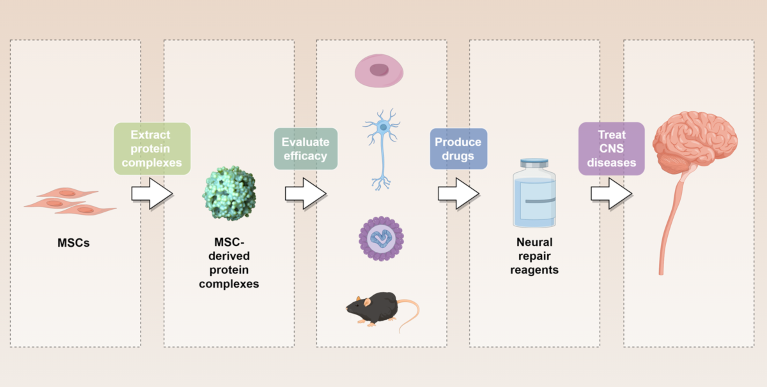he efficacy of Aleeto is currently being assessed in two double-blind investor-initiated trials (IITs) at Beijing Tiantan Hospital, affiliated to Capital Medical University, the neurology department of which is among the top in China. Preliminary results have demonstrated superior efficacy of Aleeto compared to commercially available drugs in treating both disorders. “The neuroprotective effects of Aleeto in preclinical studies are impressive,” said Yi-Long Wang, VP of Tiantan Hospital and head of the neurology department. “Aleeto is expected to fill the longstanding vacancy in clinical management of ALS and chronic stroke recovery.”
ALS (also known as Lou Gehrig’s disease) is a fatal neurological condition involving progressive degeneration of nerve cells in the spinal cord and brain that leads to muscle weakness and wasting, while chronic stroke refers to the months or years of recovery after the initial event during which the focus is on physical and emotional rehabilitation.
Aleeto is a multi-functional neural-repair reagent that targets the damaging oxidative stress, neuroinflammation and cell death involved in many neurological diseases. Preclinical studies in rodent models of ALS and ischemic stroke have demonstrated that Aleeto suppresses neural inflammation, protects neurons from oxidative stress, inhibits cell death and rescues motor defects. Moreover, before the current IITs began at Tiantan Hospital, dozens of ALS patients and hundreds of stroke patients were treated with Aleeto in open-labeled IITs, and the observed efficacy was unprecedented. “Researchers have recorded alleviated motor impairment and reduced cerebral spinal fluid neurofilament light chain (NFL) levels in ALS patients and recovered body motility and coordination in chronic stroke patients,” said Fuluan Li, research and development (R&D) director of Beijing Darwin Biotech, the biopharmaceutical company that is developing Aleeto.
CNS drug development from stem-cell derivatives
Diseases of the central nervous system (CNS) are the largest economic, social and capital burden in the world. One in six people dies from a neurological disease like stroke, while neurological disorders such as Alzheimer’s disease are the main cause of increased disability-adjusted life years. Despite these major health issues, treatments that restore damaged brain function are lacking.
Beijing Darwin Biotechnology is aiming to address the huge unmet medical need of CNS diseases by developing innovative neural-repair therapeutics. The company’s drug discovery platform is based around the finding that the substances produced by stem cells can repair and restore the function of damaged tissues. “Stem-cell therapy is limited because of the potential risk of undesirable differentiation and tumor formation, but it has been shown that transplanted human stem cells secrete a wide variety of bioactive compounds that modulate the immune system and, in the case of tissue damage, promote neural repair,” explained Li. “Focusing on stem-cell derivatives—rather than stem cells themselves—would be effective and much safer in clinical applications.”

The team at Beijing Darwin Biotech subjects mesenchymal stem cells (MSCs) to unique protein-extraction procedures. It then evaluates the efficacy of the extracted proteins in various disease-modeling systems, including cells, neurons, brain organoids and animal models (Fig. 1). “By also elucidating the mechanisms behind neural repair, and optimizing drug delivery, we are developing promising neural-repair candidates for treating CNS diseases and brain disorders that are currently believed to be incurable.”
Partnering
Phase 1 trials of the company’s lead product, Aleeto, in ALS and chronic stroke are expected to start by the end of 2025. The candidate is also in early-stage development for treating Alzheimer’s disease and autism. Li pointed out that Aleeto is suitable for multiple delivery methods, including intrathecal, intravenous and intranasal applications, which can be optimized for each indication.
Beijing Darwin Biotech is interested in collaborating or partnering with international research institutions and/or biopharmaceutical companies to continue research into this promising drug, help progress it through clinical development, and initiate the company’s globalization strategy. “Our new neuropathic drug acts on multiple pathways and receptors to ameliorate neurodegeneration and restore motor function,” said Yu Wang, also president of Beijing Darwin Biotech. “Harnessing stem-cell derivatives offers a considerable opportunity to address a huge area of unmet medical need, benefitting many patients and their families.”

Leave a Reply